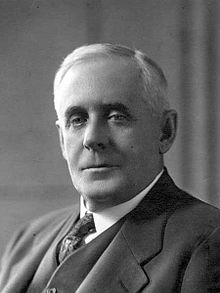- 1 2 J. M. Bumsted, "Tobias Crawford Norris". The Canadian Encyclopedia , February 14, 2008.
- ↑ "Biography – FLETT, WINONA MARGARET (Dixon) – Volume XV (1921-1930) – Dictionary of Canadian Biography". www.biographi.ca. Retrieved 2019-11-15.
Tobias Crawford Norris | |
|---|---|
 | |
| 10th Premier of Manitoba | |
| In office May 12, 1915 –August 8, 1922 |